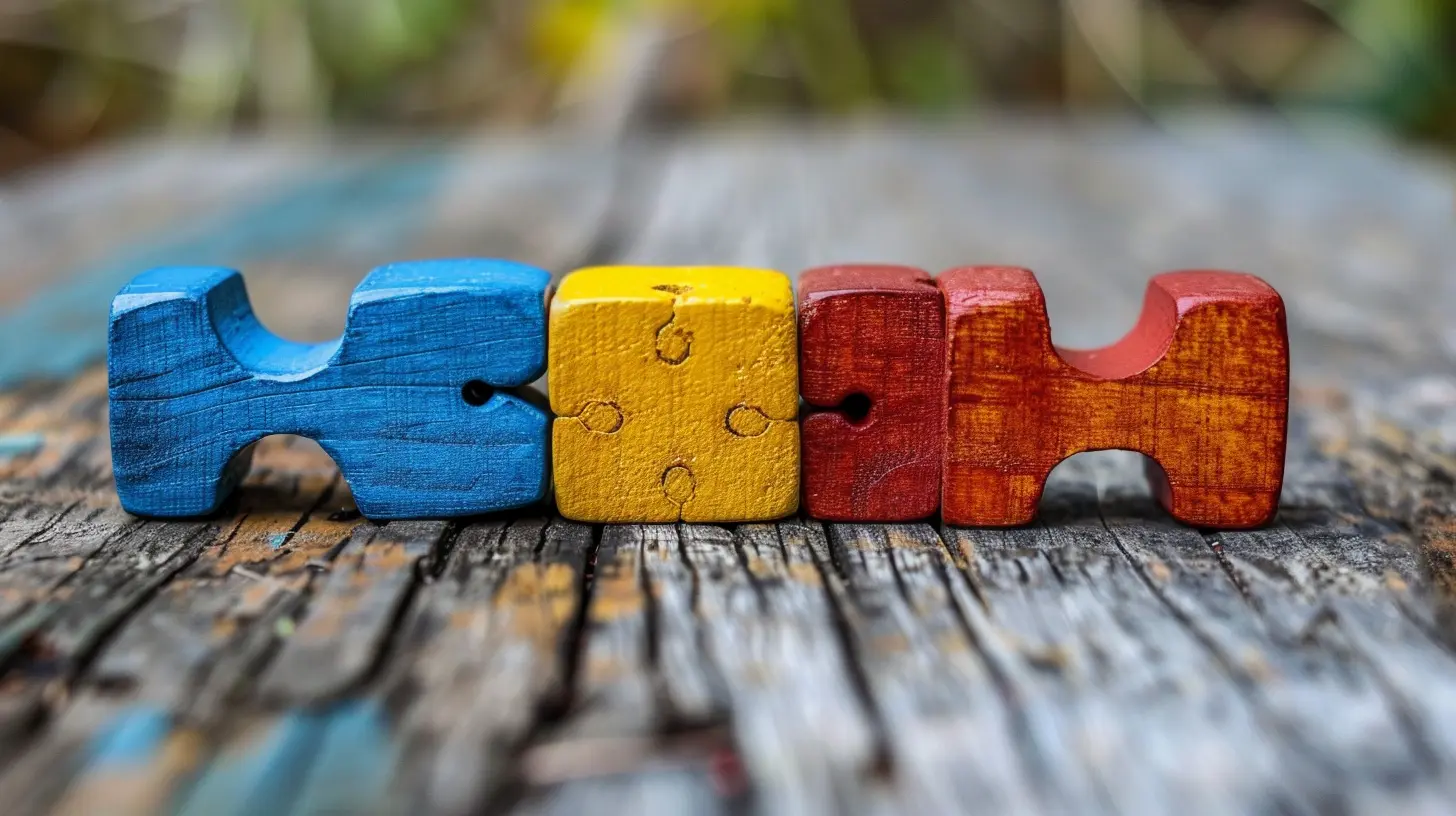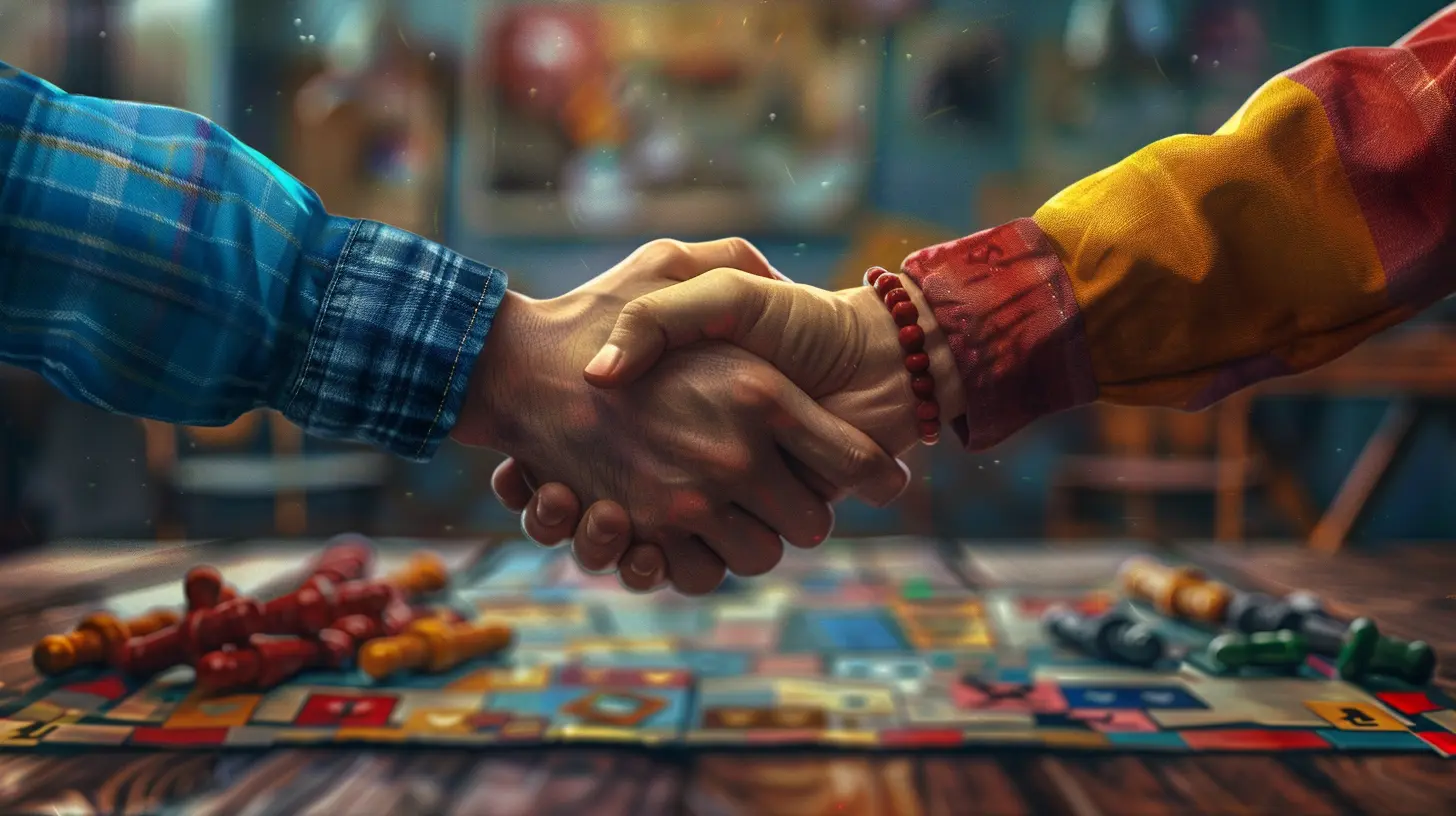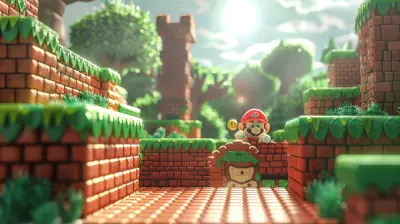Building Trust Through Social Games: A Key to Stronger Relationships
11 August 2025
Let’s be real for a sec — trust isn’t something you can just download off the app store. It’s built over time, through shared experiences, laughs, maybe even a few friendly arguments over who cheated in Uno (you know who you are). But did you know social games can actually become your secret weapon when it comes to building stronger, trust-filled relationships?
Whether you're bonding with your buddies, patching things up with your sibling, or getting to know your new in-laws without breaking a sweat, social games can act as a fun, light-hearted bridge to connection. So buckle up, buttercup — we’re diving into how something as simple as a card game or a virtual co-op mission can build trust and deepen your relationships.
What Do We Mean By “Social Games”?
Before we get into the trust-building goodness, let’s define our playing field. Social games are games designed to be played with others — online or in-person — where interaction is the name of the game. Think party games like "Codenames", digital favorites like "Among Us", board games like "Settlers of Catan", or even good ol' "Monopoly" (trust tip: maybe skip Monopoly if your friendship is still in beta mode — things can get heated!).In short, if the game requires talking, teaming up, bluffing, planning, or laughing together, it counts.
The Link Between Games and Trust (It’s Science, Not Just Fun)
So why do social games help build trust? Great question, my friend!When you play a game with someone, you're not just clicking buttons or rolling dice. You're:
- Making decisions together
- Communicating constantly
- Navigating conflicts
- Learning about each other’s quirks
This combo creates a perfect storm for trust-building. In fact, psychologists and educators have long used cooperative and role-playing games in classrooms and therapy to foster trust, empathy, and collaboration. Games provide a “safe zone” for people to lower their defenses and engage without the awkward, pressure-filled dynamics of formal conversations.
Kind of like building IKEA furniture with a friend — except nobody ends up with extra screws and emotional trauma.
Why Trust is the Backbone of Any Relationship
Let’s pause for a moment. Why are we all obsessed with trust in the first place? Because it’s the foundation for everything! Whether you’re trying to become besties with a new teammate or get your romantic partner to stop rage-quitting Mario Kart, trust is what keeps the emotional wheels turning without grinding into a flaming mess.With trust, people feel safe being vulnerable — and when you play games together, you’re constantly being a little vulnerable! You show off your problem-solving side, your competitive streak, even your goofiness. Games help normalize that openness, making it easier to carry it into real-life convos later.
How Competitive Games Build Trust (Yes, Really)
Okay, I know what you’re thinking — how does screaming “Draw 4!” and watching your buddy cry help build trust? Isn’t competition kind of the opposite of connection?Surprisingly, no. Here’s the twist: competitive games give us a platform to test trust. You quickly learn who plays fair, who bends the rules, and who you can rely on when the stakes get high (even if the “stakes” are just winning the title of Office Ping Pong Champ).
A healthy dose of competition can:
- Show respect for boundaries and rules
- Build resilience through wins and losses
- Encourage honest communication
- Strengthen emotional regulation (no table-flipping allowed!)
So go ahead, play that round of "Mario Party." Just maybe don’t always steal stars from your partner. Unless they deserve it. 😉
Cooperative Games: Where Trust Levels Up
Now if competitive games are the sandbox of trust, cooperative games are where the real magic happens.In co-op games, you and your crew are working toward a shared goal. That means strategizing, supporting each other, and adapting to everyone’s strengths and weaknesses. It’s basically practice for real life — only with less paperwork and fewer spreadsheets.
Imagine playing "Overcooked" and passing dishes while your kitchen burns down. Or scrambling to escape a virtual room in "Keep Talking and Nobody Explodes." You literally can’t win unless you communicate and rely on each other.
These moments are trust goldmines — you'll walk away with inside jokes, war stories, and a deeper understanding of how your people solve problems.
Online Multiplayer Games: Building Trust One Ping at a Time
Gone are the days when “playing with others” meant sitting around the kitchen table. These days, multiplayer games let you connect with folks across the globe — or just across your apartment hall — without putting on real pants.Even online, trust flourishes when:
- Players strategize together in real-time
- You revive a fallen teammate in a clutch moment
- You trade items or share resources
- You plan and execute complex missions or raids
Games like "Fortnite", "Apex Legends", "Minecraft" (especially on survival mode), and "Valorant" create camaraderie that spills over into how you relate off-screen.
And let’s not ignore the ultimate trust test: giving someone party leader. Will they queue for the right mode? Will they betray us with a surprise ranked match? You find out fast.
Party Games and Icebreakers – Trust’s Sneaky Little Helpers
If intense co-op gameplay isn’t your jam, fear not. Party games are trust’s sneaky little helpers — casually connecting people through jokes, creativity, and shared silliness.Games like:
- "Jackbox Party Pack"
- "What Do You Meme?"
- "Charades"
- "Drawful"
- "Cards Against Humanity" (maybe not first-date material though)
These games let people lower their guard, show their personality, and bond over laughter. A well-timed punchline or a weird drawing can kick-start inside jokes that last years. It’s low-stakes, high-fun — and the perfect way to ease people into deeper connections.
Family Game Nights: Trust Across Generations
Want to break the ice with your cousin you barely know or finally get Grandpa to put down the remote? Family game nights create a beautiful, low-pressure environment to talk, laugh, team up, or even compete across ages.And yes, even if your mom still makes up her own version of the rules.
Games help families communicate better, resolve old tensions, and understand each other beyond traditional roles. That sibling who annoyed you as a kid? Turns out they’re a great strategist in "Risk." Your dad who never opens up? Suddenly he’s cracking jokes in "Heads Up."
Trust me (pun intended), family bonds get a little tighter when you’re working toward a win together.
Romantic Relationships + Social Games = 💖
Games aren’t just for friends and fam. Couples who play together, stay together. Or at least, have way more fun.Let’s face it — trust is the glue in romantic relationships, and games offer all sorts of ways to reinforce that bond:
- Cooperative games foster teamwork and empathy
- Puzzle games challenge your communication
- Party games encourage laughter and playfulness
- Competitive games teach you how to lose (and win) gracefully
Plus, playing games is one of the most fun, affordable date night ideas out there. You can Netflix and chill, sure — but have you ever tried “Stardew Valley” and vibe?
The Secret Sauce: Consistency and Context
Here’s the kicker — one game night doesn’t fix everything. Trust builds through consistency. The more frequently you share these playful experiences, the stronger your relationships become.And don’t forget the context. Trust built during a game carries over because it feels real. You witnessed someone keeping their cool under pressure, laughing through mistakes, or sticking by your side during a gnarly boss fight. Those moments become emotional deposits in your “trust bank”.
So keep playing. Keep showing up. And keep making space for games that connect, not just entertain.
Quick Tips for Using Social Games to Build Trust
Alright, let’s wrap up with some rapid-fire tips for those ready to game their way to better relationships:1. Pick the right game for the vibe – Don’t play "Monopoly" with someone you just made up with. Trust me.
2. Be patient – Not everyone is a gaming pro. Help them feel included.
3. Celebrate teamwork over winning – Especially if you’re a tad... competitive (you know who you are).
4. Use voice or video chat – More personal connection = stronger trust.
5. Debrief after the game – Talk about what went well and laugh about the chaos.
Final Thoughts (Press X to Continue)
At the end of the day, building trust isn’t about grand gestures. It’s about the little, consistent moments — the high-fives after a win, the supportive “We got this!” shout before a boss fight, the inside joke that somehow started during a game of "Pictionary".Social games give us a playful, pressure-free way to connect on a deeper level. They remind us that trust isn’t just serious business — it’s something we build while laughing, strategizing, and sometimes yelling “TRAITOR!” at our best mate in "Among Us".
So go ahead — schedule that game night. Invite your people, load up your favorite game, and start building relationships one move, roll, or respawn at a time.
all images in this post were generated using AI tools
Category:
Social GamesAuthor:

Emery Larsen
Discussion
rate this article
2 comments
Kaitlin Sharp
Great article! It’s fascinating how social games can foster trust and deepen relationships. By encouraging teamwork and communication, these games create bonds that extend beyond the virtual world. Promoting trust in fun ways can truly enhance our connections with others.
December 19, 2025 at 5:24 AM

Emery Larsen
Thank you! I’m glad you found it insightful. Social games indeed play a vital role in strengthening our connections through fun and collaboration!
Zelda Henson
Building trust through social games fosters genuine connections, enriching our relationships in meaningful ways.
August 18, 2025 at 5:13 AM

Emery Larsen
Thank you for your insight! I completely agree—social games indeed create valuable opportunities for connection and trust-building.


